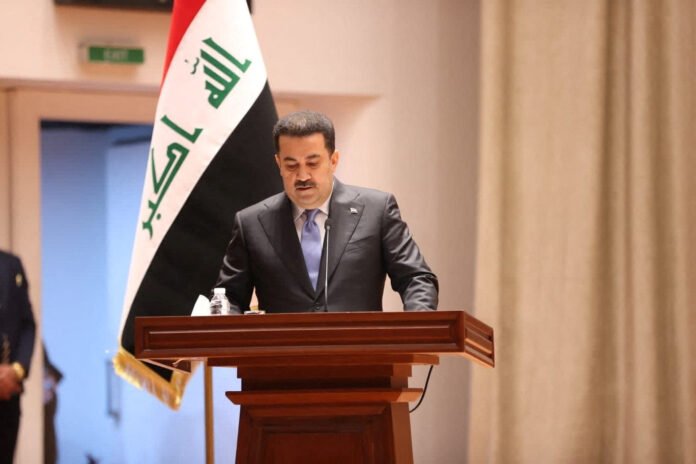Prime Minister Mohammed Shia’ Al-Sudani addressed the Conference on Reforming the Iraqi Banking Sector, revealing plans to modernize Iraq’s financial infrastructure. His vision focuses on promoting sustainable economic growth and aligning Iraq’s banking system with international standards.
One of the key initiatives presented by the Prime Minister includes the implementation of a three-year national budget. This strategic financial plan is designed to enable long-term investments in critical sectors like health, education, and infrastructure. Such investments aim to lay a strong foundation for Iraq’s future economic development.
Additionally, the government has worked to diversify Iraq’s revenue sources. The introduction of the Automated System for Customs Data (ASYCUDA) system has significantly improved customs operations. This move resulted in a 128% increase in customs revenues. Similarly, efforts to enhance tax systems led to a 22% rise in tax revenues, further reducing Iraq’s dependency on oil exports.
Prime Minister Al-Sudani also highlighted ongoing structural reforms in state-owned banks, including Rafidain, Rasheed, Industrial, and Agricultural Banks. These efforts, supported by an international consultancy firm, aim to enhance the capacity of these institutions to better serve both individuals and businesses.
Another major achievement has been the enhancement of Iraq’s digital payment infrastructure. Partnerships with leading fintech companies have made financial services more accessible to a broader population. These advancements are part of the government’s push to foster financial inclusion, with inclusion rates growing from just 10% to over 40% in two years. This achievement has been widely recognized by the World Bank and IMF.
The Prime Minister also noted the update of legislation on e-commerce and digital payments. Nationwide campaigns have been launched to promote the digital payment culture, supporting the country’s ongoing efforts to modernize its financial sector.
Furthermore, the government continues to support small and medium-sized enterprises (SMEs) through financing and resource allocation. This initiative is creating job opportunities and stimulating economic growth.
Al-Sudani reaffirmed that banking reform is at the heart of the government’s broader economic reform program. The government, in cooperation with the Central Bank of Iraq, has launched a comprehensive initiative to integrate Iraq’s banking system with international standards. These reforms aim to attract new partnerships and enhance Iraq’s engagement in the global financial system.
The banking sector reforms are central to Iraq’s strategy for achieving financial stability and fostering long-term economic growth. Through these comprehensive initiatives, Iraq is building a stronger and more competitive banking sector.


